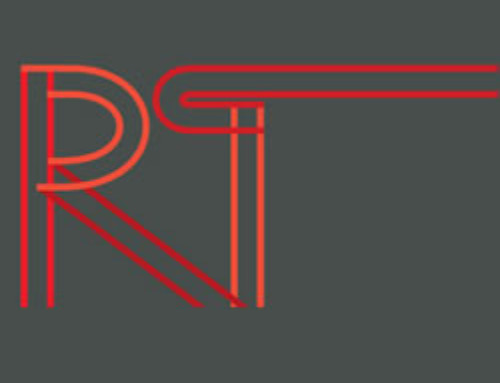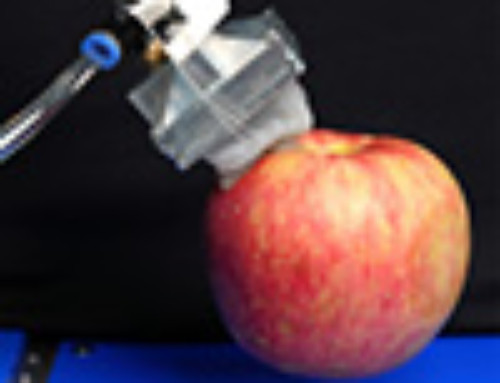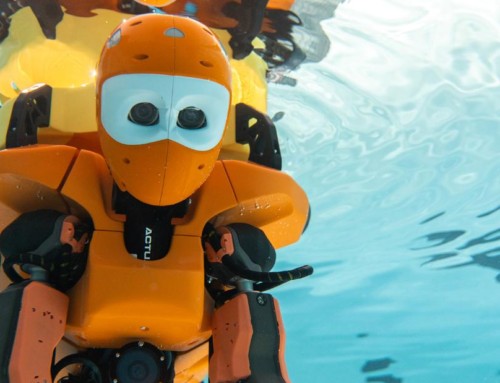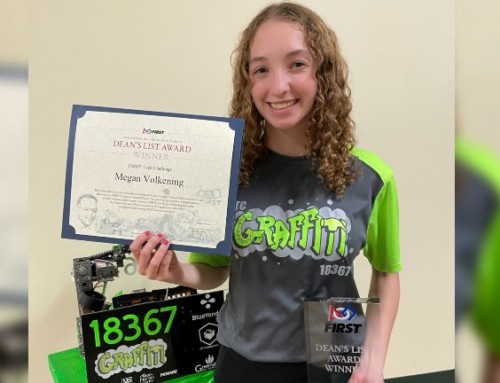[ad_1]

In a world first, Swinburne’s Repairbot project has achieved a major milestone, using a robot to successfully 3-D print a replacement lug on an automotive headlamp assembly.
The Repairbot project is an industry collaboration with Tradiebot, supported by AMA Group, and backed by the federal government via the Innovative Manufacturing Cooperative Research Centre (IMCRC).
An in-house formulated polypropylene composite material, developed by Swinburne’s materials scientist Dr. Mostafa Nikzad, was used in the process.
To guarantee the compatibility with automotive grade injection moulded plastic, Dr. Nikzad and his team had to create a material with the right characteristics for 3-D printing polypropylene, as well as the strength and toughness required to meet automotive quality standards.
The new material has enabled the robotics team, led by Swinburne’s Dr. Mats Isaksson, to engineer the 3-D print of a replacement lug directly on a headlight housing. By using a robotic arm to precisely manipulate the headlight under a stationary 3-D print head, complex geometries can be printed without the need for support material.
Repairbot fast-tracks on-the-job training
The application has the ability to add value to an industry impacted by skills shortages and a lack of newly skilled personnel. It also opens the door to a new way of developing skills in the automotive repair industry as technicians are able to work alongside robotics systems, such as the Repairbot, to fast-track their on-the-job training.
Tradiebot founder Mario Dimovski said: “It’s amazing to witness something I envisioned three years ago becoming reality. It was such a complex project with many challenges to overcome.
“What the Swinburne team have delivered is Australian innovation at its best. The Repairbot will allow repairs to be conducted on damaged automotive plastic parts not currently repairable by technicians. The benefits will affect repair shops, consumers and flow on to the environment diverting these damaged parts from landfill. It’s a win, win for everyone,” Mr Dimovski said.
Repairbot project leader Dr. Isaksson is thrilled about the recent development and called it a major step towards fulfilling the project goal of a complete prototype for automatic repairs of headlight assemblies.
He pointed out the close collaboration between roboticists and material scientists as the main contributor to the success.
“The truly cross-disciplinary nature of this project has made it possible to develop new materials and methodologies hand-in-hand with the novel robotic solutions,” Dr. Isaksson said.
Example of industry and research collaboration
David Chuter, CEO and Managing Director of IMCRC, congratulated the Repairbot team on reaching this significant project milestone and said: “The Repairbot project is a great example of industry and research collaboration. The researchers at Swinburne have wholeheartedly embraced Tradiebot’s idea of developing a technology-driven solution that will automate the repair service for automotive plastic parts.
“Reaching this major milestone demonstrates how committed they are to pushing materials and technology boundaries to help solve an industry specific problem that has the potential to not only transform Tradiebot’s business but the whole automotive repair industry. IMCRC as a collaborative partner is proud to help catalyse these transformative outcomes,” Mr Chuter said.
Dave Calder from AMA Group said: “The project, still 18 months away from hitting the shop floor, is now moving into the next stage of validation testing of the material in application and fine-tuning the digital development of the software to manage design and repair procedures.”
Repairbot has drawn interest from all pockets of the repair industry and other industries including defence. Early talks are under way with a range of potential users of the system including OEMs, repair facilities and parts suppliers.
![]()
Explore further:
Laser-made aircraft parts a breakthrough for industry
[ad_2]
Source link





Leave A Comment
You must be logged in to post a comment.